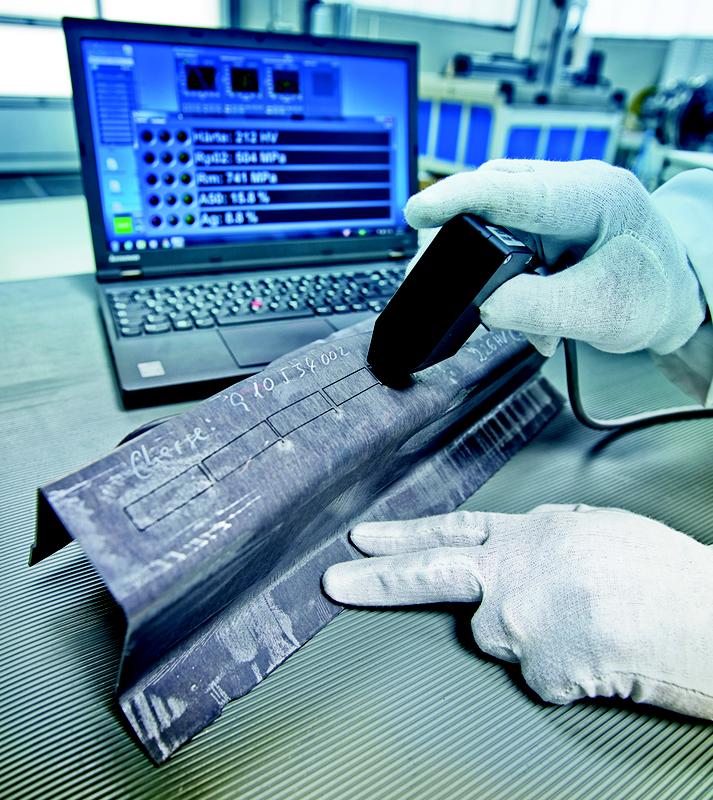Reliable in-line inspections of high-strength automotive body parts within seconds

Reliable in-line 3MA inspection results within seconds Fraunhofer IZFP/Uwe Bellhäuser
To minimize vehicle weight and fuel consumption while providing the highest level of crash safety, automotive bodies are reinforced with elements made from high-strength steel. Automotive manufacturers and suppliers are relying more and more on so-called hot stamping or press hardened processes to produce these components.
Fraunhofer IZFP has developed a fast and low-cost 3MA nondestructive testing technique that can be used to monitor and control the corresponding manufacturing processes. “Time-consuming destructive testing methods result in enormous quality assurance costs, because among things the product is destroyed in the process.
And since it's only possible to carry out spot checks, problems with the manufacturing process are often detected only after a significant number of rejects are generated,” says Dr. Bernd Wolter, head of the Production-integrated NDT department at Fraunhofer IZFP. Suitable nondestructive testing processes offer an alternative that over the long term can be adapted and utilized as a replacement for destructive methods.
The 3MA inspection technology developed by Fraunhofer IZFP is well-suited for measuring positions that cannot be inspected with destructive processes, such as when there is simply no space to carry out the measurements (tension rods as an example).
“We can ensure 100 percent testability during the production process. That eliminates the need for time-consuming spot checks. Our researchers and engineers developed and certified this inspection method for use in high-volume automobile production systems. This inline, nondestructive process can be automated, a feature that is clearly to unique to Fraunhofer IZFP,” emphasizes Wolter.
By combining four micro-magnetic inspection processes – harmonic analysis, incremental permeability, Barkhausen noise analysis and multi-frequency eddy current – this approach provides a fast and simple way to determine the quality of essential mechanical properties such as hardness, tensile strength and diffusion layer thickness.
The exhibit will illustrate several specific capabilities related to the monitoring and inspecting of manufacturing processes, press-hardened products, valve spring production and rolled steel manufacture, with a focus on production processes in the automobile, steel production and machine/plant engineering industries.
Media Contact
All latest news from the category: Materials Sciences
Materials management deals with the research, development, manufacturing and processing of raw and industrial materials. Key aspects here are biological and medical issues, which play an increasingly important role in this field.
innovations-report offers in-depth articles related to the development and application of materials and the structure and properties of new materials.
Newest articles

A ‘language’ for ML models to predict nanopore properties
A large number of 2D materials like graphene can have nanopores – small holes formed by missing atoms through which foreign substances can pass. The properties of these nanopores dictate many…

Clinically validated, wearable ultrasound patch
… for continuous blood pressure monitoring. A team of researchers at the University of California San Diego has developed a new and improved wearable ultrasound patch for continuous and noninvasive…

A new puzzle piece for string theory research
Dr. Ksenia Fedosova from the Cluster of Excellence Mathematics Münster, along with an international research team, has proven a conjecture in string theory that physicists had proposed regarding certain equations….



